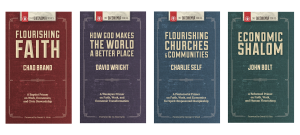


“Red, white, and gray: Population aging, deaths of despair, and the institutional stagnation of America” is a new essay by American Enterprise Institute Adjunct Fellow Lyman Stone touching on pressing demographic and policy issues in the United States. While the paper uncovers the bleak condition of some American institutions, it presents a hopeful horizon and strong call for action in our social life.
As the title suggests, Stone opens by describing the American population’s increasing age, due in part to medical advances for retirees. This positive improvement is offset by decreasing American life expectancy, a rare mix occurring today due to a sharp increase in drug and alcohol related deaths among the middle-aged. These tragic “deaths of despair” lead the author to transition to detailed policy considerations, investigating why “life is simply not working out for many American adults.”
Stone suggests that America’s institutions have grown old and cranky together, as aging and increasingly unrealistic law enforcement procedures, education systems, and public bine with intrusive zoning regulations and occupational licensing laws to smother American individuals and families. Clearly demonstrated by data and evidence, the effects of this situation, including frustration and lost hope, should sadden U.S. citizens.
However, the essay never fully discusses the other side of American public life: when government is bearing down on the people, what is holding them up? Can a healthy family munity make a difference? What would a flourishing society look like?
Stone presents a few brief thoughts that touch on these questions. For instance, America’s large prison population is not due to a high murder rate, but “a rise in nonviolent and drug offenses.” The roots of these crimes are not explored, but declining social institutions and moral culture are likely involved. Without healthy ways to express human creativity and sociability, individuals can be led down a more destructive route to recreation.
The author also notes the increased hostility between neighbors and the restrictions imposed by the “petty tyranny of neighborhood busybodies.” Stone focuses on the rules imposed by homeowner’s associations along with state and local governments, but overlooks the heart attitude.
The odd fact seems to be that those individuals with the resources and authority to shape munities and promote healthy interaction are choosing instead to make life difficult for others. Whether due to a lack of knowledge passion, local leaders don’t treat those around them as neighbors.
Fortunately, these conditions can be changed without a new law. Religious believers can see these circumstances as a call to fill the roles of neighborhood and local authority that already exist, or actively develop new organizations and social institutions. When government policies make home-ownership difficult, Habitat for Humanity has worked to step into the gap. Prison Fellowship provides some of the life skills training that young, non-violent offenders need to fit back into society.
These are large organizations, but the principle of creatively developing institutions that recognize the dignity of individuals and their needs, relying on the social nature of people and families rather than mands of the state, can and should be applied to neighborhoods. Such actions could revive the munity of a moral culture that endures, upholding its members in troubled times.
Of course, these reflections do not take away from the extensive and valuable policy proposals Lyman Stone outlines in “Red, white, and gray”. However, in the event that a divided Congress does not act quickly, mobilizing grassroots action is key. Stone’s piece shows that such work would be both timely and e.
Further, while Stone argues that “the policies at fault are basically known and fixable,” his essay demonstrates that political arrangements age and decay, making a new bill or executive order a temporary fix at best. Creative social action, rooted in the individual, sustained by the family, and nourished in munity, holds brighter hopes for endurance.
Photo credit: National Archives and Records Administration, cataloged under the National Archives Identifier (NAID)550148.









